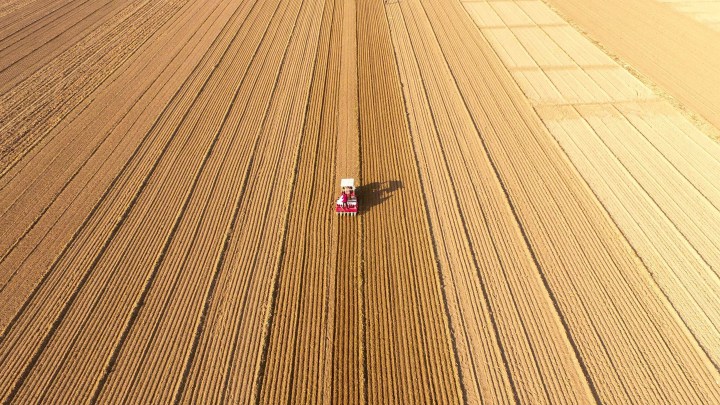
Food commodity prices highest since 2014, according to UN

The United Nations just released its food price index for February, and for the ninth month in a row, food commodity prices rose. The index is now at its highest level since 2014.
Prices were up across lots of categories — dairy, sugar, meat. Why are prices rising and how long is this inflation likely to last?
In the food industry, grains make the world go round.
“Corn and soybeans go into just about everything in some form or another,” said Ben Bienvenu, an agriculture analyst at Stephens. The U.N.’s cereal price index, which reflects the prices of grain commodities — not your morning Froot Loops — is up more than 25% from a year ago.
Bienvenu said a lot of that is driven by China’s buying more corn to feed its growing pork industry. Pair this with unpredictable weather patterns across North and South America. Locusts destroying crops in Africa, and, oh yeah, COVID-19.
“Things like labor restrictions have reduced agricultural production,” said Megan Konar, who researches food networks at the University of Illinois. She said sick workers, social distancing and the need to outfit processing plants and workers with protective gear have increased production costs.
And the thing is, even when the pandemic is over and all these precautions go away, food commodities will probably remain expensive because the increased demand and decreased supply mean food is being pulled out of storage.
And prices won’t level out until we have more reserves, according to Jayson Lusk, an agricultural economist at Purdue.
“We’re not going to have a new corn or soybean crop tomorrow. We’re going to have to wait till the fall and see what happens to harvest then,” he said.
In the meantime, some of the extra cost will be passed on to consumers. “We’re just gonna spend more on food, frankly. And that will have an impact on families’ budgets,” Lusk said.
And that will impact the economic recovery, because if people spend more at the grocery store, they’re probably going to spend less somewhere else.
There’s a lot happening in the world. Through it all, Marketplace is here for you.
You rely on Marketplace to break down the world’s events and tell you how it affects you in a fact-based, approachable way. We rely on your financial support to keep making that possible.
Your donation today powers the independent journalism that you rely on. For just $5/month, you can help sustain Marketplace so we can keep reporting on the things that matter to you.

















